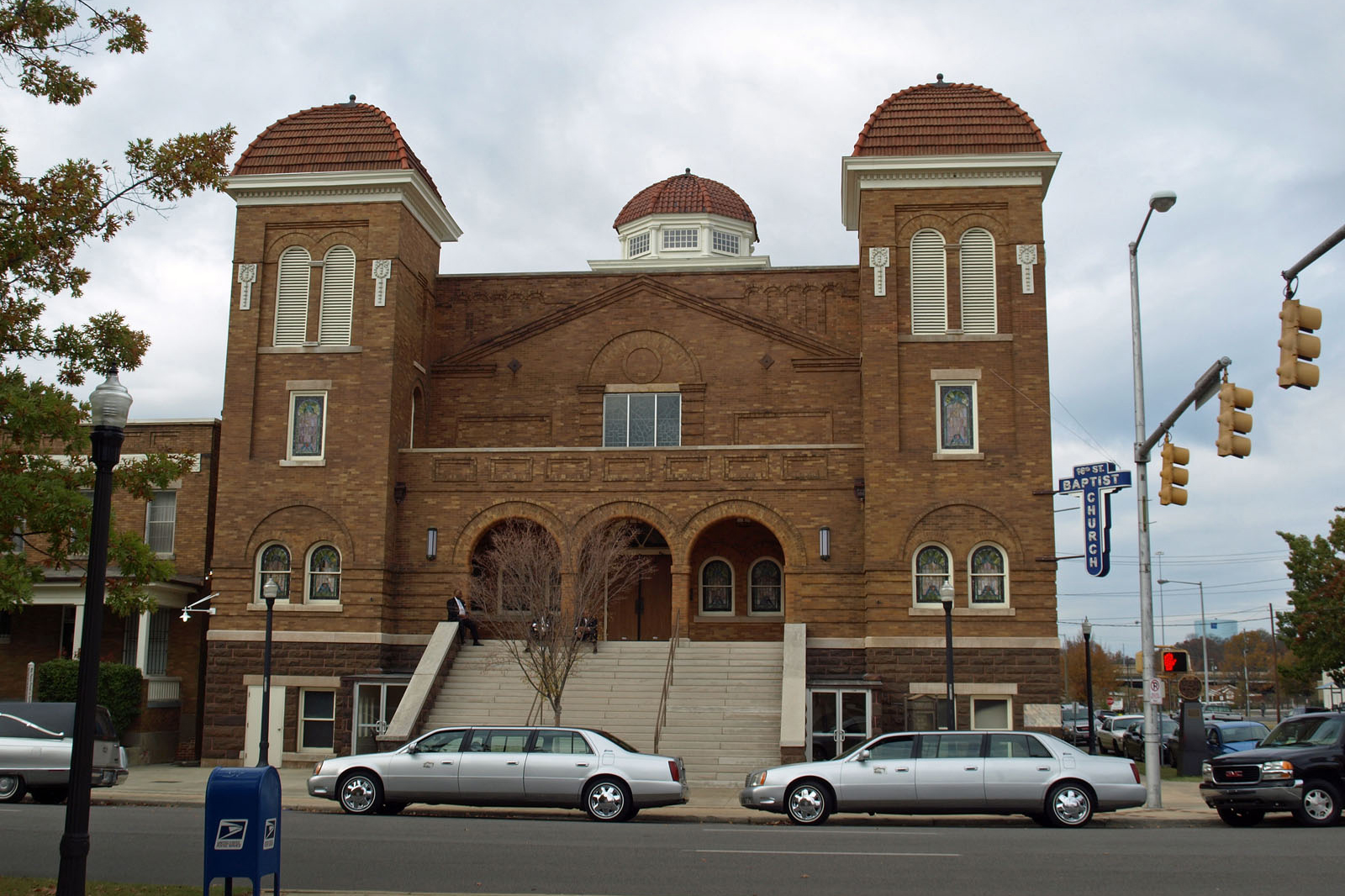As this year’s UConn Reads focus on Michelle Alexander’s The New Jim Crow comes to a close, and as the selection committee receives nominations for books connected to next year’s “Religion in America” theme, it is appropriate to think how race and religion have – at critical historical moments and significant political junctures – been intimately intertwined.
The connections between the two are vividly illustrated by the history of the Civil Rights movement in the mid-20th century. It was, after all, in black Southern churches that activists rehearsed nonviolent strategies, debated the movement’s direction, and discussed its next steps. It was in these places where Martin Luther King, Jr., Diane Nash, Bayard Rustin, and other movement leaders imagined, fostered, and sustained multiple “beloved communities.” And, in a much darker vein, it was these places of worship that were violently targeted by those who were very much committed to the segregationist registers of the “old” Jim Crow.

This vexed history, in which race and religion in America became analogous targets, is closely identified with Birmingham, Ala. During the 1950s and 1960s, the Southern metropolis was – due to an astonishing 50 dynamite explosions – provocatively nicknamed “Bombingham.” Three of those bombings directly and indirectly involved Rev. Fred Shuttlesworth, recognized civil rights activist and co-founder of the Southern Christian Leadership Conference (SCLC), whose name since 2008 has become synonymous with the city’s airport (Birmingham-Shuttlesworth International). Shuttlesworth courageously vowed to “kill segregation or be killed by it.”
On Christmas Day 1956, 16 sticks of dynamite were placed under the pastor’s window; yet although his residence was destroyed, Shuttlesworth and his family miraculously escaped unscathed. The following year, 1957, Shuttlesworth and his wife Ruby attempted to enroll their children in an all-white Birmingham school; they were subsequently attacked by a mob of Klu Klux Klansmen: Shuttlesworth was brutally beaten and Ruby stabbed. Among the assailants was Bobby Frank Cherry, who would – six years later, on Sept. 15, 1963 – be one of the four men responsible for the 16th Street Baptist Church bombing. The bombing injured 22 worshipers and claimed the lives of four African-American girls, ranging in age from 11 to 14 years old. The 16th Street Baptist Church was a well-known movement headquarters: Shuttlesworth, along with fellow SCLC leader James Bevel and Martin Luther King Jr., were frequent church speakers.
The 16th Street Baptist Church bombing would serve as a significant endpoint for what journalist/author Diane McWhorter has characterized in Carry Me Home as “the Year of Birmingham” and what would, in retrospect, represent a watershed year for the Civil Rights movement. The year 1963 began inauspiciously at the Alabama State Capitol with Governor George Wallace’s now infamous commitment in his inaugural address to “segregation now, segregation tomorrow, segregation forever.” Four months later, on April 16, 1963, Martin Luther King responded to eight local clergymen who urged him to eschew nonviolent protest with his “Letter from Birmingham Jail,” which articulated the reasons why civil disobedience was necessary – because “injustice anywhere is a threat to justice everywhere.”
On May 2, 1963, hundreds of school children began their peaceful marches through the streets of Birmingham armed with the intent to speak to the mayor about desegregation; in response, Commissioner of Public Safety – Eugene “Bull” Connor – used firehoses and police attack dogs. This distressing spectacle – in which children remained nonviolent in the face of unreasonable force – prompted President John F. Kennedy to publicly support the movement and precipitated the passage of Civil Rights Act of 1964.
Reflecting on the specific connections between church and state in the case of Birmingham and the Civil Rights movement serves as a transition from one year’s UConn Reads theme to the next, from “Race in America” to “Religion in America.” Founded as a haven from religious persecution and envisioned as an asylum of spiritual tolerance, the United States is not surprisingly home to a number of different faiths and diverse denominations; nevertheless, as the current increase in anti-Semitic and Islamophobic crimes makes clear, religion remains – like race – a contested and central issue in contemporary American life. The UConn Reads Selection Committee welcomes nominations of books, including novels, non-fiction, poetry, and graphic novels, that will prompt wide-ranging discussion of the “Religion in America” theme over the coming year.
While open to multiple types of nominations, the Committee will not consider specific religious texts (e.g., the Bible or the Quran). This year’s nomination process is already underway, and will continue through the end of April. The final selection will be announced in the first week of May. To submit a nomination, go to https://docs.google.com/forms/d/1vc02D6HbHPM5tUC3ItYeqw5inbk8_UEz21g_ovrY8tA/viewform



